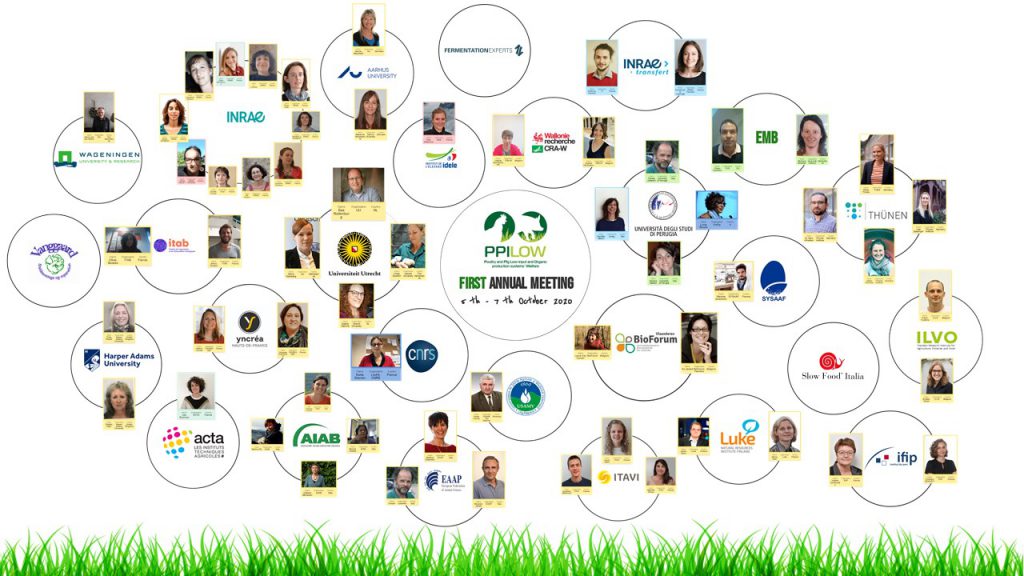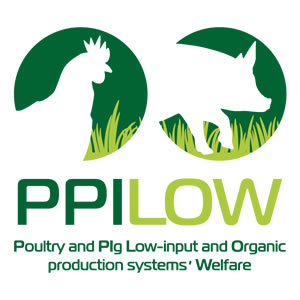The PPILOW project is one year old!
by Anne Collin (INRAE)
The first annual meeting of the European PPILOW project (Poultry and PIG Low-input and Organic production systems’ Welfare, 2019-2024, www.ppilow.eu) was held from the 5th to the 7th of October. During this 3-day online meeting, more than 80 attendees from the 23 PPILOW partner organizations in 9 countries, and several members of the project European Multiactor Board shared on PPILOW advances, arousing very rich discussions. The meeting highlighted the PPILOW multiactor participatory approach, which allows co-creation thanks to the work of 9 National Practitioner Groups. The project advances this year concerned the inventory of issues and potential levers of welfare improvements in the target systems, the creation of shared tools enabling to perform welfare self-assessment, further One Welfare sustainability assessments and to build business models. The partners presented first experiments on early management and outdoor enrichment to avoid feather pecking, and the foreseen genetic and management strategies allowing to rear organic entire male pigs without altering the meat quality. Studies evaluating the multiple impacts of rearing dual-purpose genotypes able to produce both eggs and meat are currently developed in Denmark, hence avoiding the elimination of male day-old layer chicks. On this purpose also, the development of a non-invasive in ovo sexing method is going on in experiments combining physics techniques and molecular studies. Strategies enabling to enhance the robustness and health of pigs and poultry are tested, such as i) rearing new genotypes of slow-growing broilers favoring the free range exploration, ii) selecting pig genotypes and improving hut designs for sows reared outdoor for decreasing piglet mortality rates, iii) feeding pigs and laying hens with plant extracts or fermented components for decreasing parasitism or bacterial diseases, before iv) launching studies on early life management levers for increasing broiler resilience. This experimental work will be amplified in the coming years thanks to the work of several students starting their PhD, namely Evelien Graat (EV ILVO), Claire Bonnefous and Océane Girardie (INRAE), joining in PPILOW Helen Pluschke (Thuenen) and Saskia Kliphuis (Utrecht University) who had started their PhD last year. Finally, the development of dissemination materials and the partners’ interactions with collaborative networks, end-users and policy makers ensure the impact of the PPILOW project for pig and poultry welfare improvement in organic and low input outdoor farms throughout Europe.
This project has received funding from the European Union’s Horizon 2020 research and innovation program under grant agreement No 816172.


